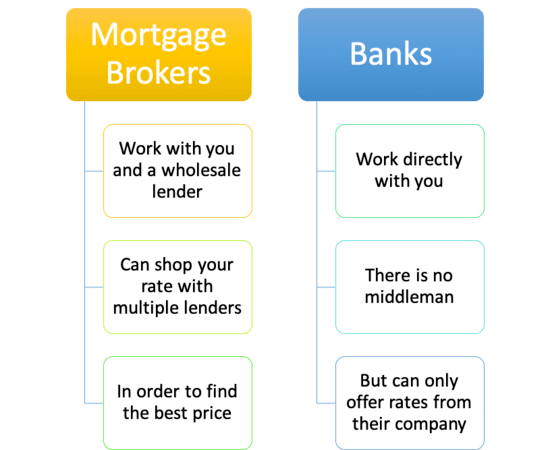Jumbo Loan Rates: What You Required to Know Prior To Applying
Jumbo Loan Rates: What You Required to Know Prior To Applying
Blog Article
Understanding What a Jumbo Financing Entails and Just How It Varies From Standard Fundings
Navigating the ins and outs of jumbo car loans discloses a financing choice customized for those venturing right into high-value realty, normally exceeding the restrictions set by the Federal Real Estate Finance Agency. In comparison, conventional lendings are typically a lot more obtainable, profiting from backing by entities such as Fannie Mae and Freddie Mac. The considerable risk connected with big lendings requires more stringent certification needs, including greater credit report and significant down payments. As these 2 finance kinds satisfy varying monetary landscapes, understanding their subtleties is critical for making notified decisions in the intricate world of realty funding. Yet how do you establish which path finest matches your financial method?
Interpretation of Jumbo Financings
Jumbo finances are a kind of home loan that go beyond the conforming financing limitations established by the Federal Housing Finance Agency (FHFA) These car loans deal with debtors who need to fund residential properties that are much more pricey than what standard financing limits allow. The FHFA develops yearly adapting lending restrictions, and any type of financing surpassing these limits is classified as a big lending.
Generally, jumbo lendings are used in high-cost actual estate markets where home costs significantly go beyond national standards, such as in cities or luxury housing industries. As these car loans are not eligible for acquisition by Fannie Mae or Freddie Mac, they lug fundamental dangers for lending institutions as a result of their bigger size and non-conformity (jumbo loan). As a result, loan providers commonly impose more rigorous qualification standards for jumbo loans than common conforming financings.
Debtors looking for jumbo fundings should generally show a solid economic profile, including a higher credit rating score, robust income verification, and significant deposit, frequently 20% or more. In addition, lending institutions may call for more comprehensive documentation to examine the customer's capability to take care of bigger month-to-month repayments. Understanding the specific features of big loans is critical for possible borrowers navigating this sector of the home loan market.
Traditional Car Loans Summary
While jumbo car loans cater to high-value residential property funding, conventional financings represent the more typical home mortgage option in the housing market. These lendings are not insured or assured by any type of government entity, such as the Federal Housing Management (FHA) or the Division of Veterans Affairs (VA) Instead, they are backed by personal lenders and stick to standards set by government-sponsored enterprises (GSEs) like Fannie Mae and Freddie Mac.
Traditional lendings are normally offered with fixed or flexible rate of interest rates and vary in regards to period, typically extending 15 to three decades. Debtors typically like standard fundings for their predictable regular monthly payments, which can assist in lasting economic planning. Additionally, they are readily available for key homes, 2nd homes, and investment homes, using adaptability to meet varied customer needs.

Trick Differences Between Loans
Comprehending the subtleties between various sorts of fundings is critical for possible property buyers browsing the intricate home mortgage landscape. At the center of this decision-making process are jumbo fundings and traditional fundings, each having distinctive features and offering different borrower requirements. The key distinction more tips here rests in the loan quantity. Big loans surpass the adhering lending restrictions set by the Federal Real Estate Money Agency (FHFA), which vary by region. On the other hand, standard lendings follow these limitations and are generally purchased by government-sponsored entities like Fannie Mae and Freddie Mac.

In addition, the down repayment demands can differ significantly. Jumbo financings usually need bigger deposits, sometimes exceeding 20%, to alleviate threat. Standard loans, conversely, might enable lower deposits, with some programs accepting as low as 3% for professional buyers.
Credentials Demands
Securing a jumbo funding includes fulfilling much more rigorous qualification requirements compared to conventional financings, reflecting the increased risk to lenders. These car loans, which go beyond the conforming lending limitations established by the Federal Housing Finance Firm (FHFA), are not eligible for purchase by Freddie Mac or Fannie Mae, thereby revealing loan providers to higher financial danger - jumbo loan. As an outcome, customers need to demonstrate a high credit reliability and monetary security
A durable credit report, normally 700 or higher, is critical for authorization. Lenders also anticipate a lower debt-to-income (DTI) ratio, usually not surpassing 43%, making sure that consumers can handle significant regular monthly settlements alongside other financial responsibilities. A substantial cash money reserve is generally needed, commonly amounting to six months of mortgage settlements, to reassure loan providers of the borrower's economic strength.
Down repayment expectations are likewise raised, frequently beginning at 20% or even more of the building's value. While this is a protect for lenders, it requires significant upfront funding from borrowers. In addition, evidence of consistent, enough revenue is necessary, normally verified through tax returns, W-2s, and recent pay stubs. Freelance people may need to give more documents, such as profit and loss statements, to confirm their income security.
Picking the Right Financing
Browsing the complexity of jumbo financings calls for careful consideration when choosing the most appropriate finance alternative. With the wider variety of options available check to those seeking jumbo financings, the decision-making procedure should entail an extensive evaluation of one's monetary account and long-lasting goals. Unlike conventional financings, jumbo finances usually include stricter demands and differed rates of interest, which necessitate comprehensive study and a clear understanding of one's economic standing.
When selecting between different big loan offerings, it is critical to review the lending terms, including rate of interest prices, settlement timetables, and linked charges. Borrowers must compare the prices offered by various loan providers to guarantee they safeguard one of the most desirable terms. In addition, understanding the ramifications of fixed versus adjustable-rate home mortgages (ARMs) is crucial, as each alternative provides unique benefits and dangers depending on market conditions and personal monetary approaches.
Involving with a monetary consultant or home mortgage broker can supply important understandings customized to private conditions. These experts can aid in browsing the subtleties of jumbo car loans, guaranteeing that customers are well-informed and geared up to select a loan that straightens with their economic goals, eventually facilitating a smoother home-buying process.
Conclusion
In recap, big car loans work as an economic instrument for getting high-value homes, necessitating stringent eligibility requirements and higher rates of interest because of the elevated threat for lenders. Unlike conventional financings, which comply with FHFA limits and may get backing from Fannie Mae or Freddie Mac, big financings call for a minimum credit report of 700 and significant deposits. Comprehending these differences is vital for consumers in high-cost realty markets to determine the most appropriate finance option for their requirements.
The FHFA develops annual adapting car loan restrictions, and any kind of loan going beyond these limits is categorized as a jumbo loan.
At the center of this decision-making procedure are standard financings and jumbo lendings, each having unique characteristics and serving various customer requirements.Safeguarding a big financing entails meeting extra rigorous qualification needs compared to standard financings, showing the boosted risk to lending institutions. Unlike traditional loans, jumbo car loans commonly come with more stringent needs and varied interest rates, which necessitate extensive research study and a clear understanding of one's financial standing.
Unlike conventional car loans, which adapt to FHFA restrictions and may obtain backing from Fannie Mae or Freddie Mac, jumbo fundings require a minimal credit scores score of 700 and substantial down settlements.
Report this page